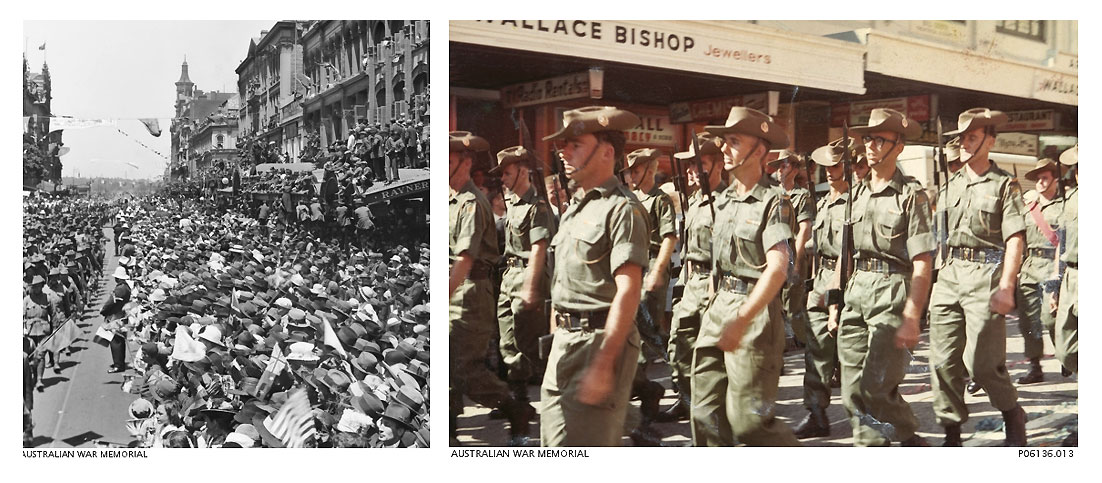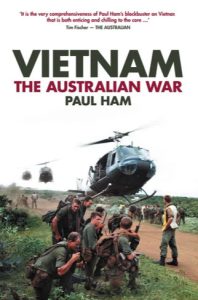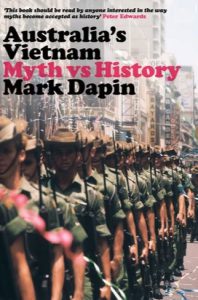Once we were heroes
Paul Calleja

“Once we were heroes but now, we are condemned, abused, disrespected and disowned”.
So said a US Vietnam veteran when commenting on treatment he, and his comrades-in-arms, received when they returned home from Vietnam to the US.
These sentiments strongly resonated with many of Australia’s Vietnam veterans, whose homecoming treatment mirrored that of the US veterans.
Paul Ham’s account of the homecoming of Australian veterans in his bestselling Vietnam: The Australian War, which won the NSW Premier’s Prize for Australian History, details many personal accounts of discreditable treatment returning Vietnam veterans received as early as 1966.
bestselling Vietnam: The Australian War, which won the NSW Premier’s Prize for Australian History, details many personal accounts of discreditable treatment returning Vietnam veterans received as early as 1966.
Ham’s description of this shameful treatment is disturbing. He claims veterans returned to an indifferent Australia, which neither welcomed them nor properly understood how they were physically or mentally affected by the conflict.
He cites veterans being turned away from an RSL club on Anzac Day “because Vietnam wasn’t considered a ‘real war’”. Many Vietnam veterans were also excluded from marching in Anzac Day parades during the 1970s because some soldiers of earlier wars saw the Vietnam veterans as unworthy heirs to the ANZAC title and tradition. Such ostracism and mistreated by other military veterans, was particularly painful for Vietnam veterans to endure.
Many within the anti-war movement, particularly the militants, disregarded the fact that soldiers were merely pawns in a politicians’ war, probably because it was inconvenient to their varied agendas.
Save Our Sons (SOS) mainly encompassed mothers fearful of harm or the unthinkable for their sons. Others were pacifists who, philosophically, were anti-war. The militant group, viewed the Vietnam War was a nationalist war which had nothing to do with the US or Australia. The fact that over a million of Vietnamese, who formally lived in the north, fled to the south in 1954 to escape Communist rule, was ignored.
These factors led to extreme and reprehensible behaviour by militants of the anti-war movement. Veterans were spat upon during their welcome home marches. One twenty-one-year-old woman, Nadine Jensen, threw paint over herself near Sydney Town Hall in 1966 and ran between the ranks of marching soldiers, bumping into several, and finally threw her arms around the commanding officer heading the march.
QANTAS dumped soldiers on the tarmac in the middle of the night to hide them from the public. The airline later explained this incident as a procedure to have planes available during the day to service regular flights. Some believed that, most didn’t.
One veteran quoted by Ham recalled being attacked as soon as he got off the plane in Sydney. “Outside Mascot airport, hundreds of demonstrators pelted him and his fellow troops with rotten fruit,” Ham tells readers. Another soldier described family reunions inside an airport terminal being interrupted when “these motherfuckers come bursting in carrying placards… One I’ll never forget as long as I live… a placard saying ‘CHILD KILLERS.’ “
A sad conclusion of all of this was that none of the perpetrators ever publicly recanted or apologised.
Vietnam veterans had to wait until 1987 to be properly honoured at a “Welcome Home” parade in Sydney on 3 October 1987. Tens of thousands of returned soldiers marched in the Vietnam Veterans marched before an estimated crowd of 100,000, including the prime minister, Bob Hawke.
The very point of “Welcome Home” parade was a massive public effort to right the wrongs that had been inflicted on so many of them. And, only then, a campaign for the construction of the Vietnam War Memorial began. This memorial, known as the Vietnam Forces National Memorial, was established on Anzac Parade in Canberra, and was dedicated on 3 October 1992.
However, Mark Dapin in his book Australia’s Vietnam: Myth vs History, controversially claims all accusations against the anti-war movement are myths — nothing more than the harmless expressions of veterans’ subjective experience.
controversially claims all accusations against the anti-war movement are myths — nothing more than the harmless expressions of veterans’ subjective experience.
Many Australians struggle accept his claims and supporting arguments — but, that’s another story.
However, something that cannot be disputed is that, today, it is overwhelmingly held that —Vietnam Veterans are again, heroes.
